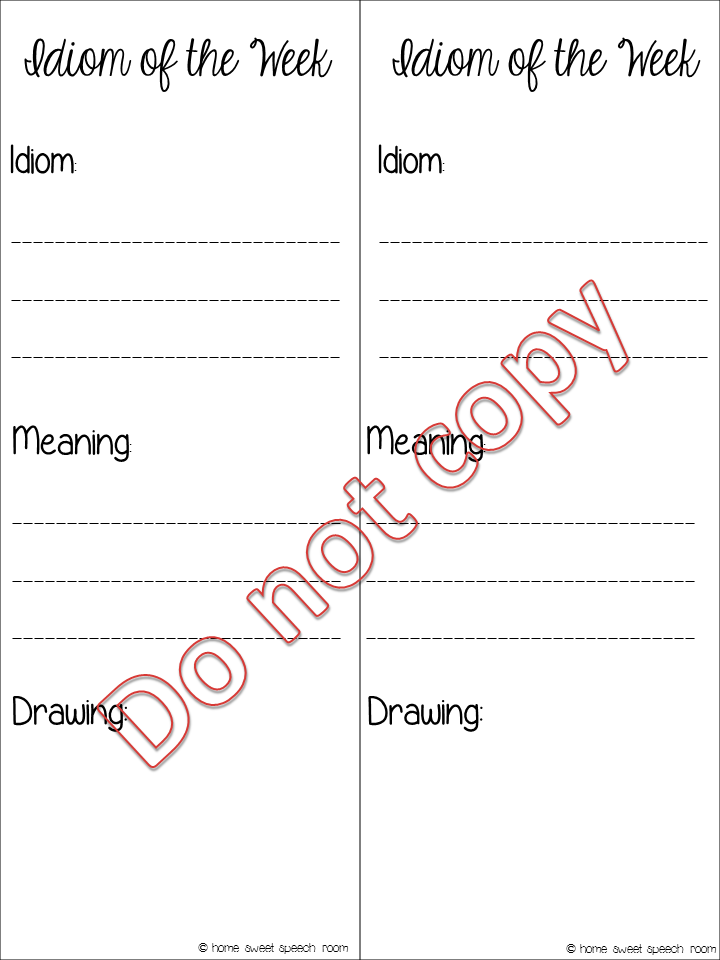Continuing on with the celebration for 1000 likes, I asked Abby to talk about some strategies for social skills and pragmatics. This is an awesome post with lots of evidence-based practice ideas!! So here we go with Day 3- take it away, Abby!
Yesterday's winner-Breana O. Congrats! You will be emailed by the end of the week!
Hi! I'm Abby and I am the author of Schoolhouse Talk! I was thrilled when Carissa reached out to me and asked if I would help her celebrate reaching 1000 'likes' on her facebook page. What an awesome milestone Carissa - congratulations! Today I will be sharing a brief overview of some strategies for training social skills.
Social Skills are defined as
socially acceptable learned behaviors.
These skills are important because they bring about positive responses
from others when we interact. Many children want to form meaningful relationships but may not have the
skills to do so. A lack of such skills can result in anxiety and social
isolation, poor academics, substance abuse, and even suicide in extreme
cases. Social skills are not just for
students with autism spectrum disorder, and should be taught in every environment a child
enters.
The students we work with can have difficulty in skill acquisition (i.e. learning the
skills they don't have) as well as skill performance (using the trained
skills they have). When training skill acquisition, the best instruction
stays within the zone of proximal development (ZPD). The ZPD is the range of skills between what a child is able to do
independently, and the skills the child can do with support.
SOCIAL NARRATIVES:
Social
narratives is a strategy for teaching specific social skills or
concepts by presenting the skill in the form of a story. Social
narratives are perfect for serving as a primer, which helps make a child
aware of a skill, transition, new activity, or routine. Social
narratives are often written by breaking a task down into smaller steps.
Narratives should be written so the child wants to read them, should be
written at the same level a child is reading at or able to understand,
and should use flexible terms such as "may" or "might" instead of more
rigid terms such as "must" or "will". Carol Gray has many examples of
well-written Social Stories
on her website.
We
can combine social narratives with behavioral rehearsal, or
role-playing, for maximum effectiveness. When incorporating role-playing
into training, we are then able to target both "thinking" about a skill
and "doing" the skill.
If you'd like to learn more,
this website does a nice job explaining social narratives, and also provides links to
additional resources.
PROMPTING:
Prompts are support and assistance that is provided to help a student
experience success.
Prompts can take many forms, such as physical touch, modeling, verbal
prompts, gestural prompts, or natural prompts. An example of a natural
prompt is someone saying, "Hello." When working with your students, you
want to use the least supportive prompt necessary in order to ensure
success. Remember, students need to be attending to a situation in order
to perform the appropriate or expected response. So many times,
students' attention should be prompted prior to prompting their
behavior. That prompt for attention may be all the student needs to
refocus and perform the desired behavior. Fade your prompts as quickly
as possible once a student is responding. An easy way to fade prompts is
to pair a more supportive prompt with a less supportive prompt, then
fade away the more supportive prompt.
PEER MENTORS:
Peer
mentors are another great way to help train social skills in a more
natural set-up than child/therapist interactions can provide. Basically,
peer mentors are trained to appropriately initiate and respond to their
peer. Now the adult therapist can facilitate the play, but is not
directly part of the interactions, resulting in
significantly
reduced prompts to the student! Peer mentors should be a similar age to
the student, should demonstrate adequate social skills, and should also
have a history of getting along well with your student. I think this is
such a great way to train social skills! When I go to a classroom to
pull students, there are always some peers who beg me to take them too.
Now I have a good excuse to agree! Remember to get parent permission
before selecting peer mentors to train. Another good idea is to choose a
couple "generalization peers" to see how trained skills and
interactions transfer to other 'novel' children.
This publication
from the Vanderbilt-Minnesota Social Interaction Project is an
excellent explanation of incorporating social skills training and peer
mentors in the classroom. Are any of you using peer mentors in your
practice?
VIDEO MODELING & VIDEO SELF-MODELING
Video modeling is a
highly
effective strategy for students with autism due to the strength of
visual cues vs. auditory cues for these students. Students are shown
short videos which demonstrate appropriate and successful target
behaviors. Much like athletic teams have been studying videos, this
technique is now moving into the classroom! These videos should be
positive and focus on success, and should be 1-2 minutes in length so
your students can retain the information in memory.
When
using video self-modeling, your students are the stars! You can record
your student participating in social interactions. You can even provide
prompts and instructions to the student while recording, but then edit
those prompts out before showing the video to your student. That way,
the final cut that your student watches shows him or her performing a
desired behavior successfully. How powerful for a student to see!
Remember, keep the videos
positive and focus on performing behaviors
successfully!
So that's it - four effective evidence-based techniques for introducing social skills and training behaviors!
Thank you so much for allowing me to share on Home Sweet Speech Room
today! Congratulations on 1000 Facebook 'likes' - WOW! (Schoolhouse Talk
is also on facebook, twitter, and instagram!)
Thanks so much, Abby! Hope you all learned a lot from this post and that it will be helpful to you!!
Today, I also have TWO great giveaways for you- One from If Only I Had Super Powers and another from Let's Talk Speech Therapy.
CC from If Only I Had Super Powers generously donated her new Space Hero Social Skills unit for one lucky reader to win! It looks awesome!! Check it out
here for more pictures and info. Enter the rafflecopter below for a chance to win!
a Rafflecopter giveaway
Rachel at Let's Talk Speech Therapy is giving away one copy of Building Conversation to a lucky reader!! It's simply adorable. Check out more pictures and info
here and enter the rafflecopter below for a chance to win!
a Rafflecopter giveaway



























































